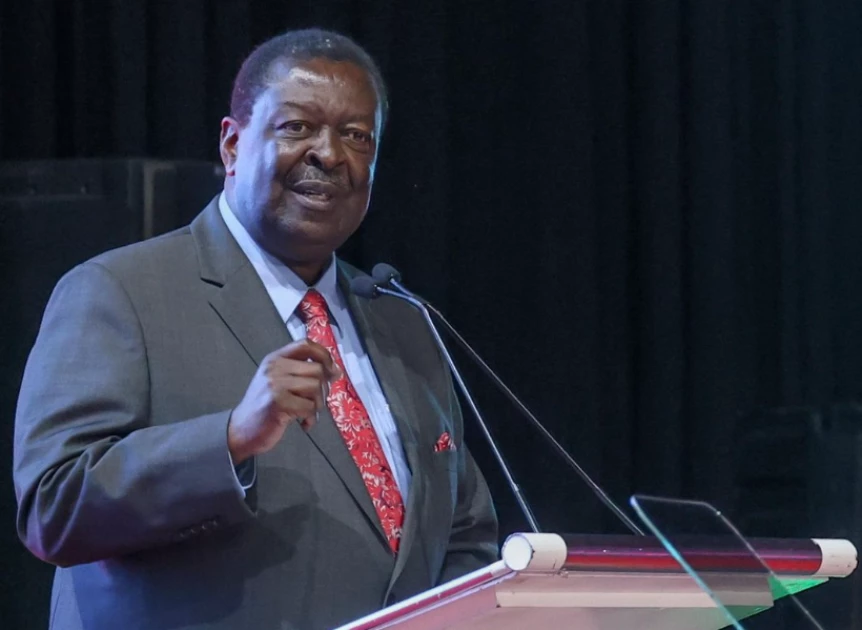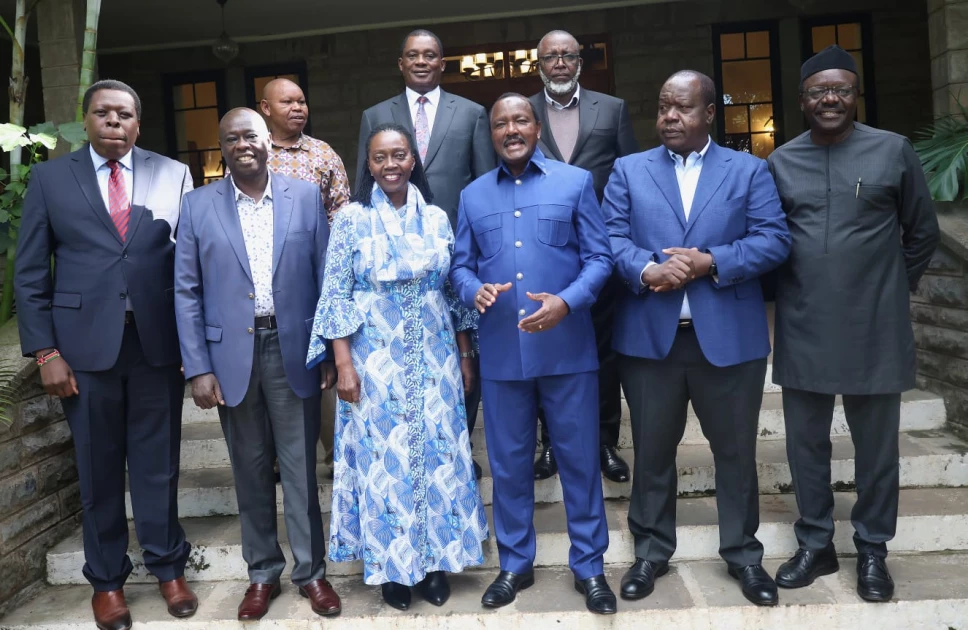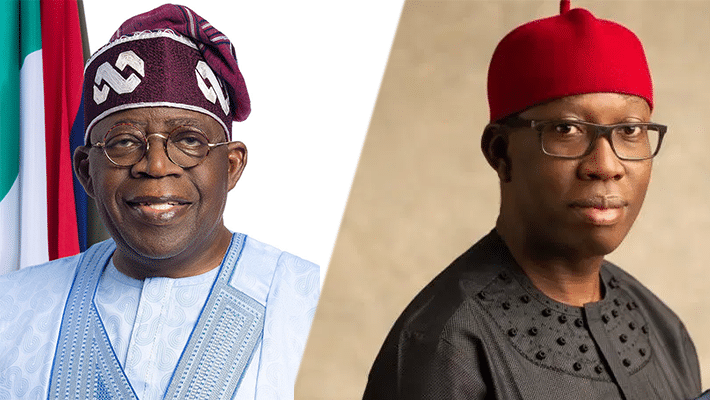
Leslie Maasdorp is not new to development finance, but he is , the U.K. development finance institution.
He’s challenged the status quo in the past: In a 2021 opinion piece in the Financial Times, he argued that and could increase their lending capacity if they weren’t wedded to it.
Sign up to this weekly newsletter to get the insider brief on business, finance, and the SDGs in your inbox every Tuesday.
In late February, Adva sat down with Maasdorp at the Finance in Common Summit in Cape Town, South Africa. They talked about what he’s focused on at BII and how that reflects what’s going on in development finance more broadly. Adva also asked about the impact of U.K. aid cuts, which had recently been announced — but Maasdorp said , which has the capital it needs. Still, “the decision naturally does alter the overall kind of global framework within which we work,” he said.
He said he intends to focus on four things at BII: climate finance, private capital mobilization, cooperation with other DFIs and MDBs, and innovation.
• Maasdorp believes there is potential for further growth at BII, which is already exceeding its goals of devoting 30% of its annual commitments to climate-related projects. But he recognizes potential trade-offs between climate and development and said that Africa will remain a key focus even as BII expands its decarbonization work in South and Southeast Asia.
• : DFIs and MDBs are recognizing that they have to be “much more catalytic,” he said. While it hasn’t happened yet, Maasdorp also anticipates that shareholders or owners of these institutions will eventually require them to set clear mobilization targets for how much private investment they are attracting with each dollar they commit. But those targets will vary by institution. And they need to be different in fragile or low-income markets — where institutional investors may not want put their money — versus in more mature markets, where there is more potential for private investment.
• : BII should work more closely with its fellow DFIs and with MDBs, both to harmonize standards and simplify the investment process, he said. And each DFI or MDB should play to their strengths.
• : BII should consider what it can do differently, he said. Part of that is a new initiative working with private asset managers, pension funds, and sovereign wealth funds to find out what they need in terms of concessional funding to actually invest alongside BII on some of its climate projects.
“We want to kind of be a laboratory of ideas,” he said. “ about crowding in these guys, but you need to bring those guys inside the room so they can actually tell you.”
‘A laboratory for ideas’ — new CEO Maasdorp on his priorities for BII
+ Join us tomorrow at 9:30 a.m. ET (3:30 p.m. CET) for . In the live conversation, Simon Meier, the head of BII Plus, will share how the DFI structures technical assistance, what types of support it provides, and what makes for a strong partner. Register now.
This event is exclusive to Devex Pro members. , start a 15-day free trial now to access all our exclusive content and events.
Devex was in Sydney, Australia, last week for the 10th Impact Investment Summit Asia Pacific.
Much of the talk on and off stage was about the carnage of American aid in recent weeks, but there was also a sense that , Vince Chadwick reports for Devex.
As Andrew Kuper, CEO of LeapFrog Investments, told us, when it comes to markets where his firm invests, such as India and Vietnam, “they’re significantly more stable — from a political standpoint, from a currency standpoint, from a policymaking standpoint, and from an expectation of growth standpoint — than almost every developed country.”
The prize for our most candid chat over the two days was with Philippe Valahu, CEO of the Private Infrastructure Development Group, or PIDG, which invests in Africa and Asia and is backed by donors including the U.K., Australia, and Sweden.
Not only are — something he decried as “absurd” back in 2019 — but Valahu said some are also crowding out the very private players they are supposed to incentivize.
Whereas PIDG will lower its stake as an anchor investor in a debt fund if it is oversubscribed, Valahu said other DFIs will insist on committing their full amount.
“If you have the private market willing to come in and you’re essentially displacing it because you’ve done the work and you want your $50 million and the revenues associated with it, because you’ve got your own KPIs to deliver for the end of the year, I’m sorry, that’s not acceptable,” he said.
Our next question: What’s the value-add of the European Bank for Reconstruction and Development expanding to sub-Saharan Africa, where so many other Western development institutions, and the African Development Bank, are already present?
“I’ve asked the question many times and I don’t have the answer,” Valahu said. “Are they going to be doing the small-scale, 10 to 15 megawatt off-grid, mini-grid solutions? I can’t see how that’s in their DNA to do that.”
Are Western donors any closer to solving their long-held bugbear about ? “Not yet,” Valahu said. Plus, what about the workers?
“Fine, you’re going to do European procurement but who’s going to bring the labor? It’s not going to be Europe,” Valahu said. “If it’s local, which is great, who’s doing the training and capacity building? That’s going to be a massive undertaking.”
And last, is there hope that this year’s International Conference on Financing for Development in Spain
“We’re getting all the email traffic and the various pieces of paper for comment,” Valahu said. “I took one a few months ago, and I looked at a 20-pager. I lost the will to live. And if you start putting your name on one you’re doomed, because you’re going to spend the next six months doing this full time, for what?
“It’s being billed, including by our own shareholders, as THE summit … But the question I always ask, because we’re headquartered in London: Will it meet the Daily Mail test when the CEO of PIDG is there having a grand old time in Seville on July 1, 2, and 3?”
The world must reshape global finance at 2025 UN summit
As US aid falters, development finance trends to watch in 2025 (Pro)
While there have been a growing number of debt-for-nature or debt-for climate swaps in recent years, or the lack of climate finance for vulnerable countries that they are touted to be, write Karabo Mokgonyana, a renewable energy campaigner at Power Shift Africa, and Tess Woolfenden, a policy adviser at Debt Justice, in an opinion piece for Devex.
There is also growing talk about debt swaps that would focus on or include renewable energy, which the authors warn “.”
Why debt swaps are failing the renewable energy transition
Which multilaterals are ? [Devex Pro]
in a live interview. [Reuters]
How development finance institutions . [Center for Global Development]
: From rhetoric to reality [Elcano Royal Institute]
World Bank President Ajay Banga: . [Financial Times]













